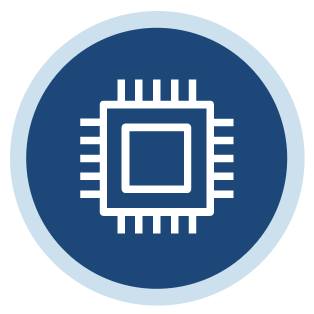Engineering Robust Regulatory TCell Therapy for Vasculitis
Project Abstract:
Vasculitis is a family of diseases characterized by the inflammation of blood vessels and is responsible for the hospitalization of about 100000 Americans each year Current therapies rely on the use of immunosuppressants such as methotrexate corticosteroids and cyclophosphamide each of which is associated with a long list of side effects resulting from nonspecific suppression of the immune system andor chemotherapeutic toxicity A cellbased immunotherapy approach to vasculitis could significantly reduce toxicity while increasing the specificity and duration of therapeutic efficacy The use of regulatory T cells Tregs which exert immunosuppressive effects against a wide variety of cell types is a potentially generalizable strategy against autoimmune and inflammatory diseases Specifically lowdose interleukin IL2 therapy has been shown to result in clinical improvements of vasculitis patients by stimulating Treg expansion Tregs suppress Tconv function through multiple mechanisms one of which is the secretion of tumor growth factor beta TGFb a potent immunosuppressive cytokine that inhibits Tcell effector functions as well as proliferation Our laboratory recently developed a novel chimeric antigen receptor CAR that triggers robust Tcell activation in response to soluble TGFb It has previously been demonstrated that Tregs can be activated via CAR signaling to suppress the effector function of conventional T cells Tconvs We hypothesize that the TGFb CAR could be uniquely suited to facilitate Treg therapy for vasculitis in two ways a by providing a method to selectively expand Tregs over Tconvs with soluble TGFb and b by providing a mechanism for selfsustained activation of TGFb CARTregs via a positivefeedback loop with activated Tregs producing more TGFb to provide sustained selfstimulation Successful completion of the proposed project will result in a novel cellbased immunotherapy against autoimmune and inflammatory diseases with vasculitis as the specific disease model for our studies Aim 1 Develop a TGFbmediated ex vivo expansion protocol for robust Treg propagation The ability to selectively expand Tregs without contaminating Tconvs is a major challenge in Treg therapy development Since TGFb is a potent suppressor of Tconv proliferation we hypothesize that expanding Tregs in the presence of TGFb and arming the Tregs with TGFbresponsive CARs that further stimulate Treg activation would result in significantly improved ex vivo Treg expansion TGFb CARs will be stably integrated into primary human CD4CD25CD127dim Tregs and TGF CARTregs will be expanded ex vivo with a range of cytokine TGFb and feedercell input concentrations Treg expansion rates as well as FoxP3 expression levels will be monitored Through this study we aim to establish a protocol for ex vivo Treg expansion with high efficiency ie large foldexpansion and high purity ie minimal presence of contaminating Tconvs Aim 2 Optimize the suppressor function of TGFb CARTregs in vitro and in vivo TGFb CARs will be stably integrated in primary human Tregs and evaluated for their ability to suppress Tconv effector functions TGFb CARTregs will be cocultured with autologous Tconvs as well as target cells expressing surfacebound OKT3 which can activate Tconvs via their Tcell receptors in the presence and absence of soluble TGFb The ability of Tconvs to proliferate lyse target cells and produce Th1 cytokines will be quantified Upon verification of the TGFb CARTregs suppressor function in vitro we will evaluate the Tregs in vivo using the MPOANCA DTH mouse model for vasculitis The TGFb CAR technology to be used in the proposed research was developed in our research group and a PCT application has been filed with claims around specific compositions of TGFbbinding polypeptides and TGFb CARs as well as their methods of use















